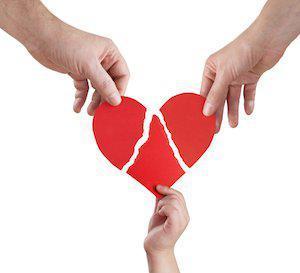What Parents Should Share with Children During a Divorce
 No matter what age children are, divorce can cause them to experience a wide-range of emotions and fears about what will happen to them. Feelings of anger, confusion, sadness and guilt can weigh heavily as a child watches his family fall apart.
No matter what age children are, divorce can cause them to experience a wide-range of emotions and fears about what will happen to them. Feelings of anger, confusion, sadness and guilt can weigh heavily as a child watches his family fall apart.
Parents can help transition children and ease the impact divorce can have. Here are steps that family counselors recommend parents share with their children:
- One of the most important things to stress to children is that the divorce is not their fault. Many children think that it is something lacking in them that causes their parents to argue and think if only they were better at school, better in sports, better behaved, etc. It’s also important for children to know that isn’t their responsibility to "fix" the marriage. Details of issues between the parents should not be shared with the children.
- Children’s feelings are their own and there is no right or wrong way to feel about the divorce. If parents fighting have been a family norm for a long time, children may even feel relief that the marriage is ending. Let them know no matter what they feel, it is okay.
- Reassure children that both parents love them. Whatever feelings may have changed between Mom and Dad, that doesn’t change how much the parents love the children. And regardless of the fighting that is going on between you and your spouse, try to present a united front to your children.
- Explain to the children that each parent expresses their love in different ways. Time spent, money spent, trips taken, etc. are ways that children sometime use to measure how much a parent "really" loves them. Sharing with child that these are things that are often determined by time and financial circumstances of the parent and do not reflect how much they are loved.
- It’s critical for children to know that their relationship with each parent is private and independent. Parents need to respect the child’s relationship with the other parent and should never pry.















